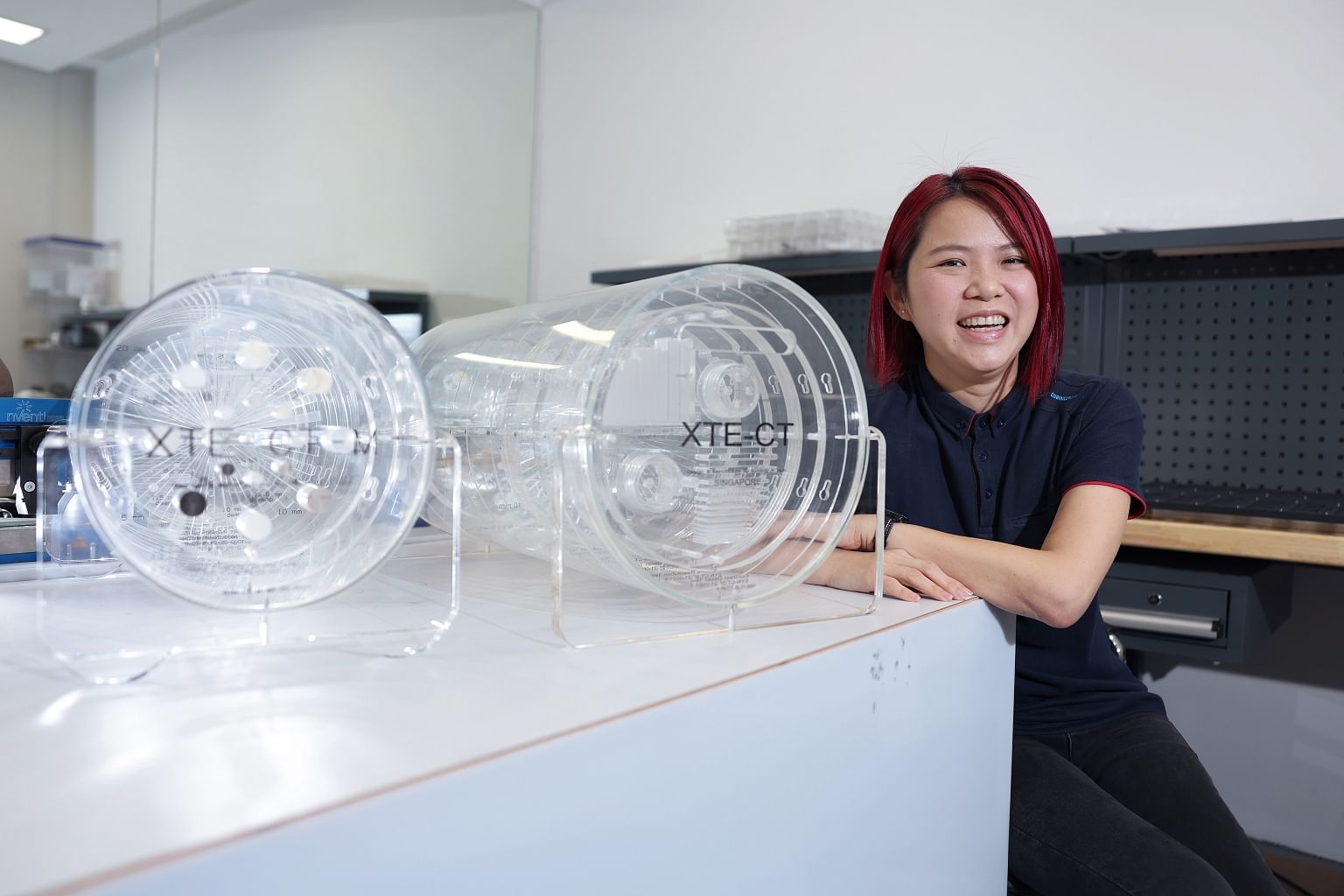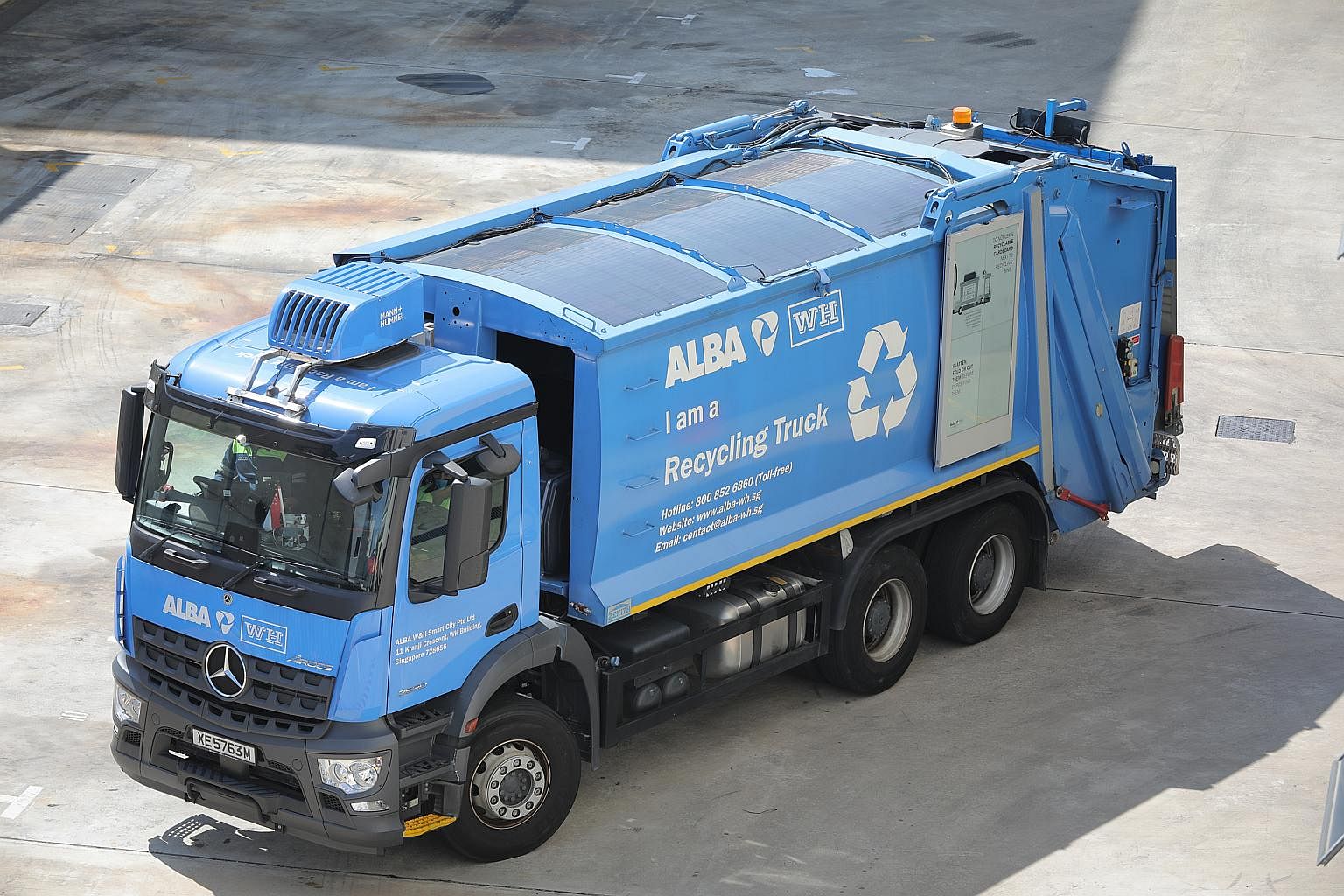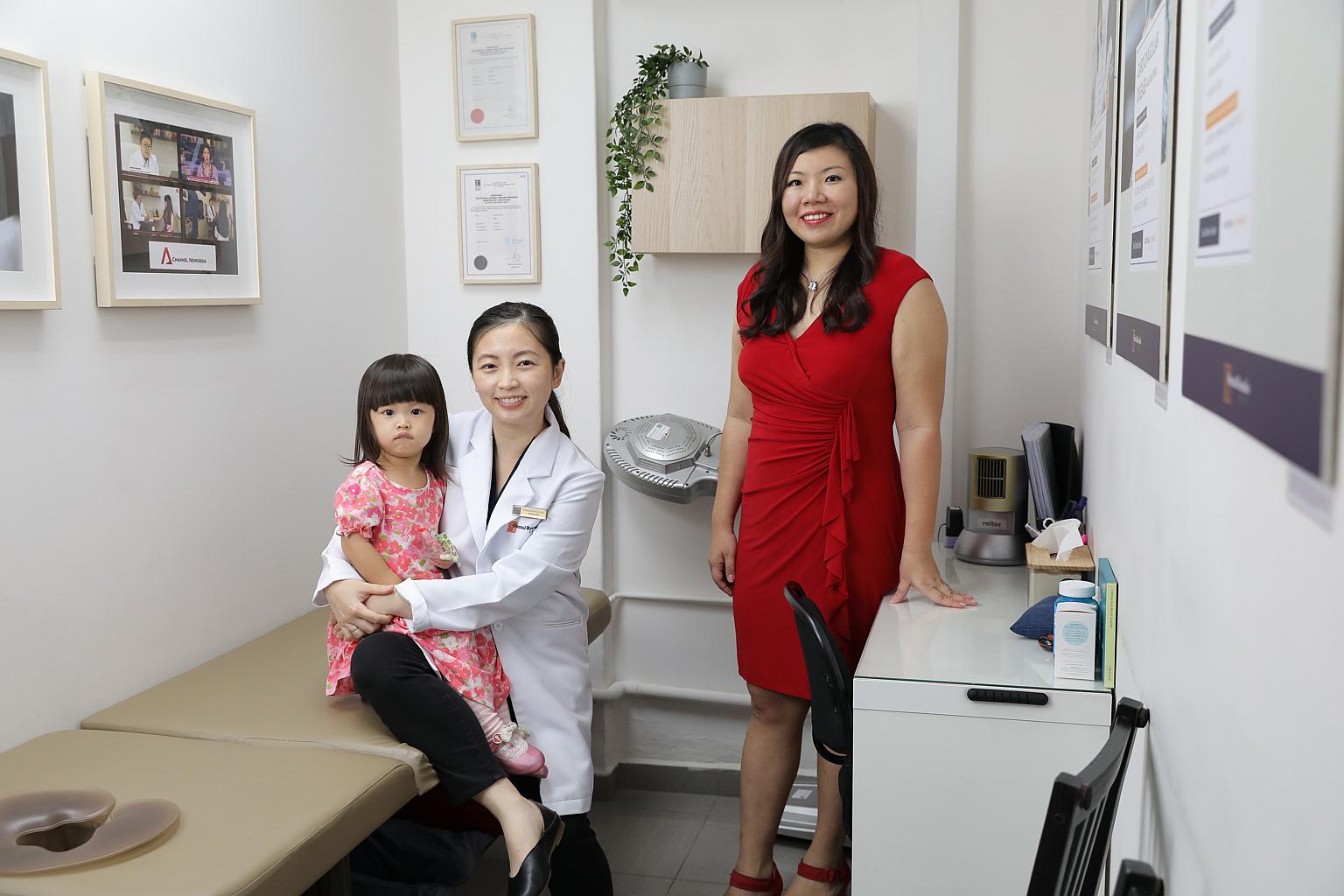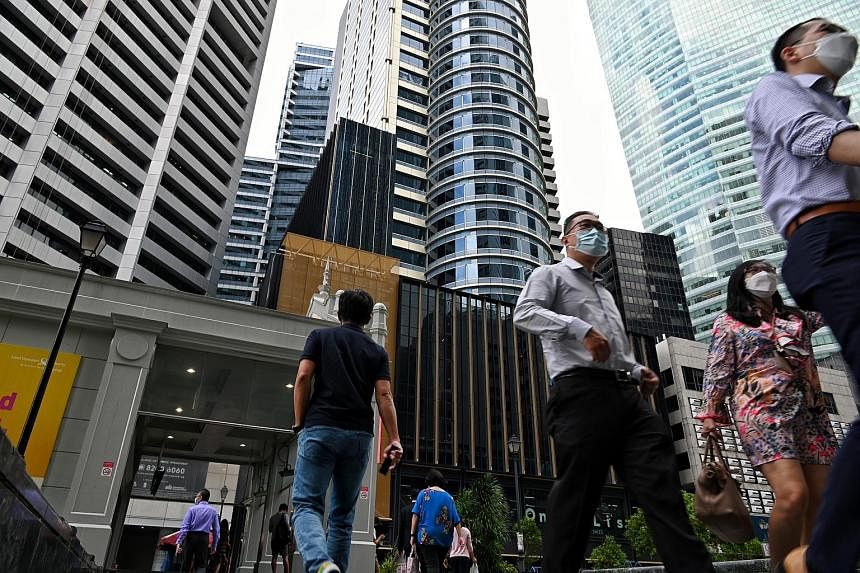SINGAPORE - The Republic must build on the momentum from the Covid-19 pandemic and continue to transform the economy, said Prime Minister Lee Hsien Loong on Sunday (May 1) at the May Day Rally.
Singapore has to keep its eyes open for new opportunities, press on with transformation efforts and strengthen its resilience for the future, said PM Lee, addressing about 900 unionists gathered at Downtown East and another 1,000 attending virtually.
He added that besides contributing ideas, the labour movement has been deeply involved in transforming and upgrading the economy, and improving the productivity of businesses and workers.
Economic transformation does not just depend on having the right national policies, he said. To make it happen, every business and every worker needs to make the effort in business transformation and upskilling.
"The two of them must go hand in hand, so that when new jobs are created, workers are equipped to take them up. When there is technology and progress, workers are not displaced," said PM Lee.
"We have been pushing hard - digitalisation, automation, upskilling and training - every May Day we talk about it for years now. But I am glad we did that, because when the pandemic forced the pace, our businesses and workers were not caught by surprise."
In his speech, he gave several examples of companies pivoting and adapting to seize new opportunities.
One of them is precision engineering firm Certact Engineering, whose main business used to be producing metal parts for semiconductor manufacturers.
Its managing director Ellis Eng said that two years ago, the company already felt it was losing market competitiveness and needed to pivot.
It saw an opportunity to grow its small plastics engineering arm - which was seeing high demand amid the pandemic, particularly to manufacture plastic parts for medical equipment such as ventilators - but it needed help to make this major move, said PM Lee.
Certact then decided to join the National Trades Union Congress' Company Training Committee initiative and worked closely with the Advanced Manufacturing Employees' Union to map out the changes before taking the plunge.

PM Lee said: "Business has since doubled, and the company continues to expand and employ more staff. I hope more companies will follow Certact's example."
Another example was recycling and waste management company Wah & Hua, which struggled to hire foreign workers during the pandemic.
Its chief executive Melissa Tan then decided to rebrand the sector by investing in smart garbage trucks from Germany that have solar mats on the roof and dust filters to clean the air. These efforts were part of the company's operation and technology road map developed with NTUC.

"The trucks and the devices are operated by truck captains - it's a small change of title, but a meaningful gesture to recognise their skills, and instil pride in themselves," said PM Lee.
The third example was traditional Chinese medicine provider Oriental Remedies Group, which wanted to attract and retain more female employees in a traditionally male-dominated business.
Its chief executive Beatrice Liu partnered NTUC's small and medium-sized enterprises arm, U SME, to implement workplace policies to reduce gender discrimination and harassment, made flexible working hours the default arrangement, and redesigned job scopes to support working mothers.
Today, 70 per cent of the company's workforce is female, and its revenues have grown almost seven times over the last two years, noted PM Lee.

The three examples demonstrate different ways to realise business transformation, he added.
"Companies with worker-centric practices will do well in the future labour market," PM Lee said.
"We need to maximise the potential of our domestic labour force. Our resident population is hardly growing, our workforce is ageing, the economy is generating more jobs than we have workers for... Labour will be a permanent constraint for Singapore," he added.
The upcoming tripartite guidelines on flexible work arrangements will help Singapore respond to these trends, said PM Lee.
He added: "If we can implement flexible arrangements well, then more people, especially mothers and caregivers, will be able to continue working, or to come back to work after their babies are a bit older, and to achieve work-life harmony.
"We should see other benefits also, like less peak-hour travel and congestion. And maybe - a little boost to our total fertility rate."


